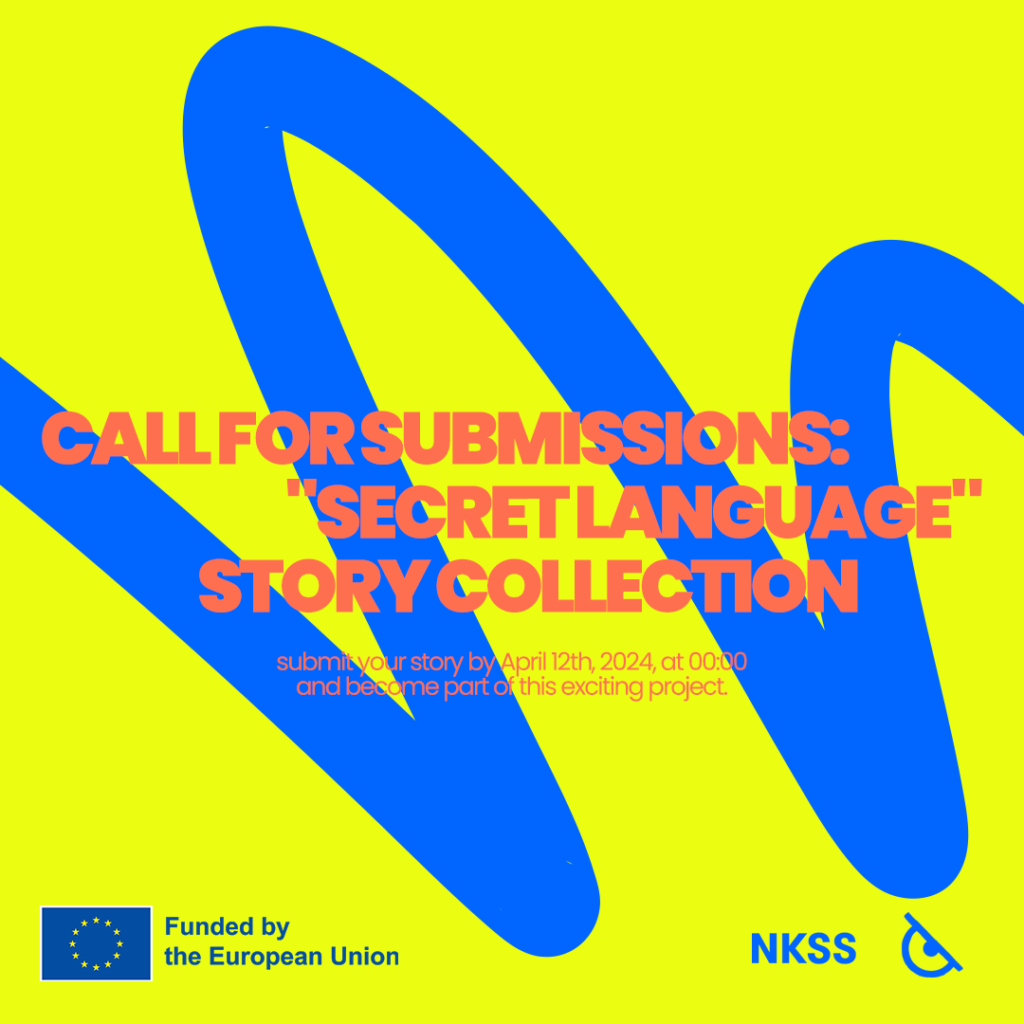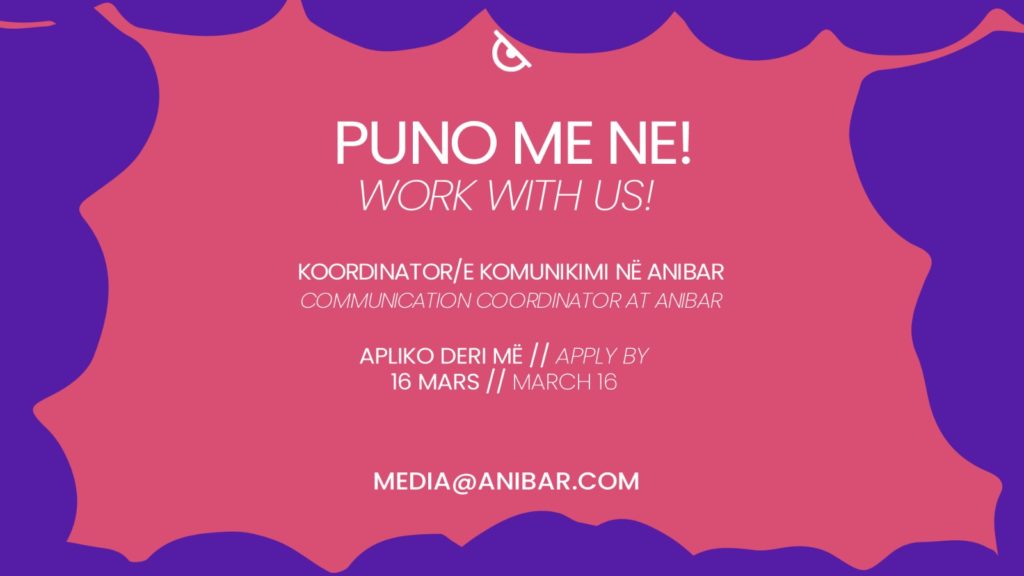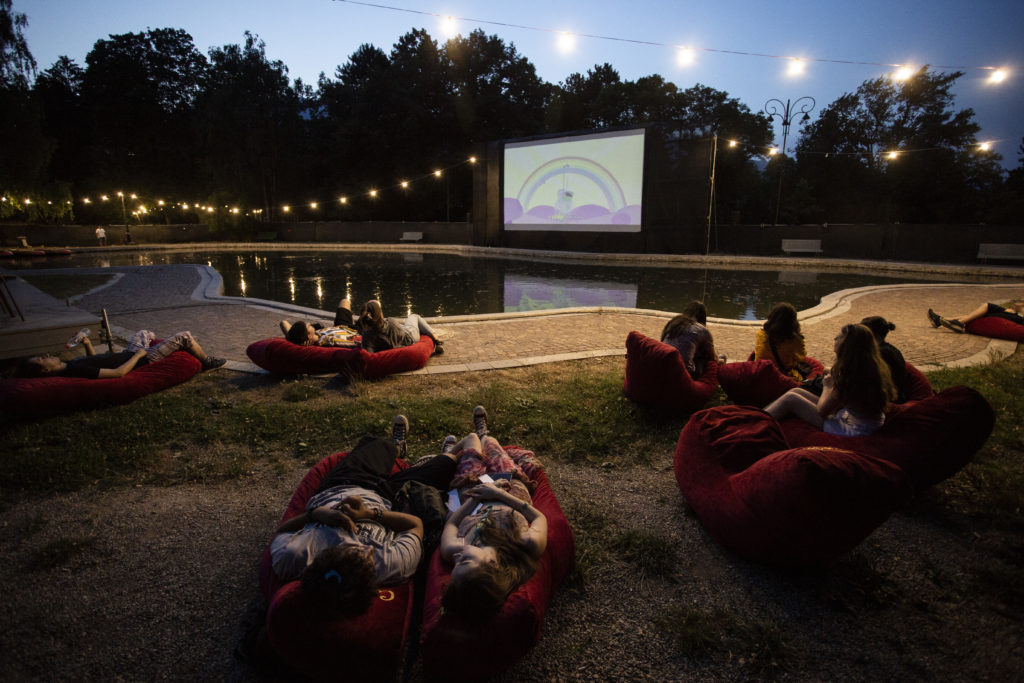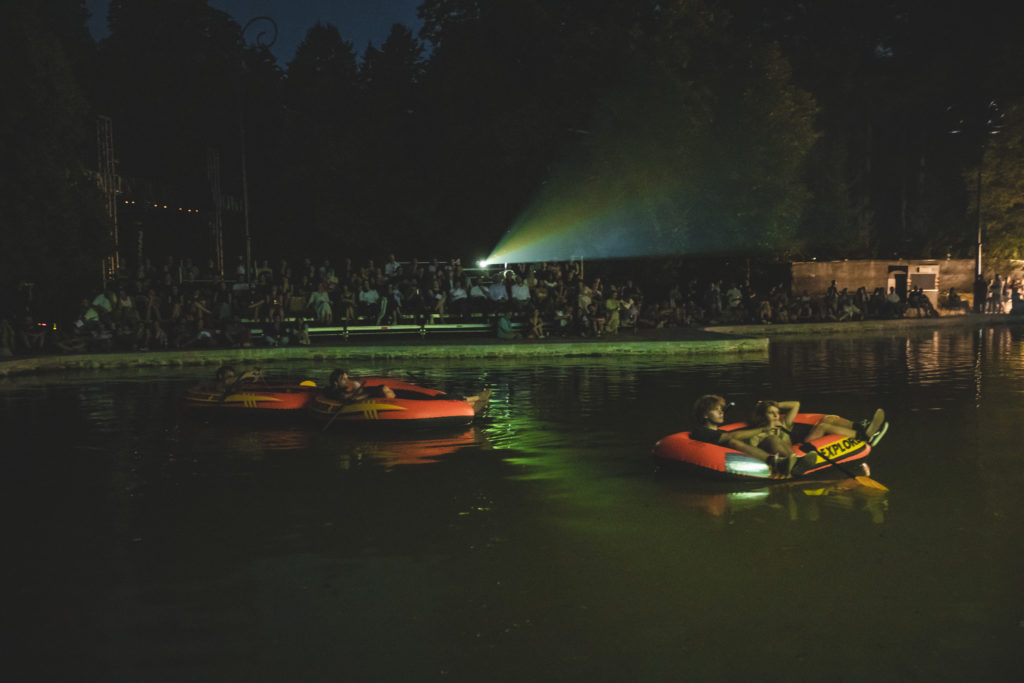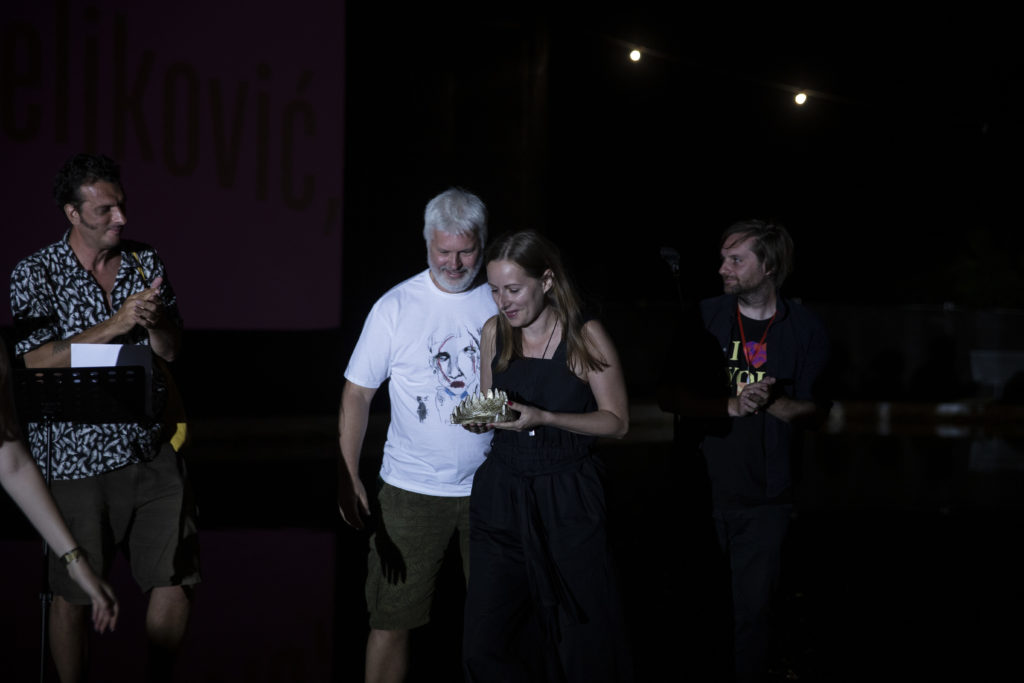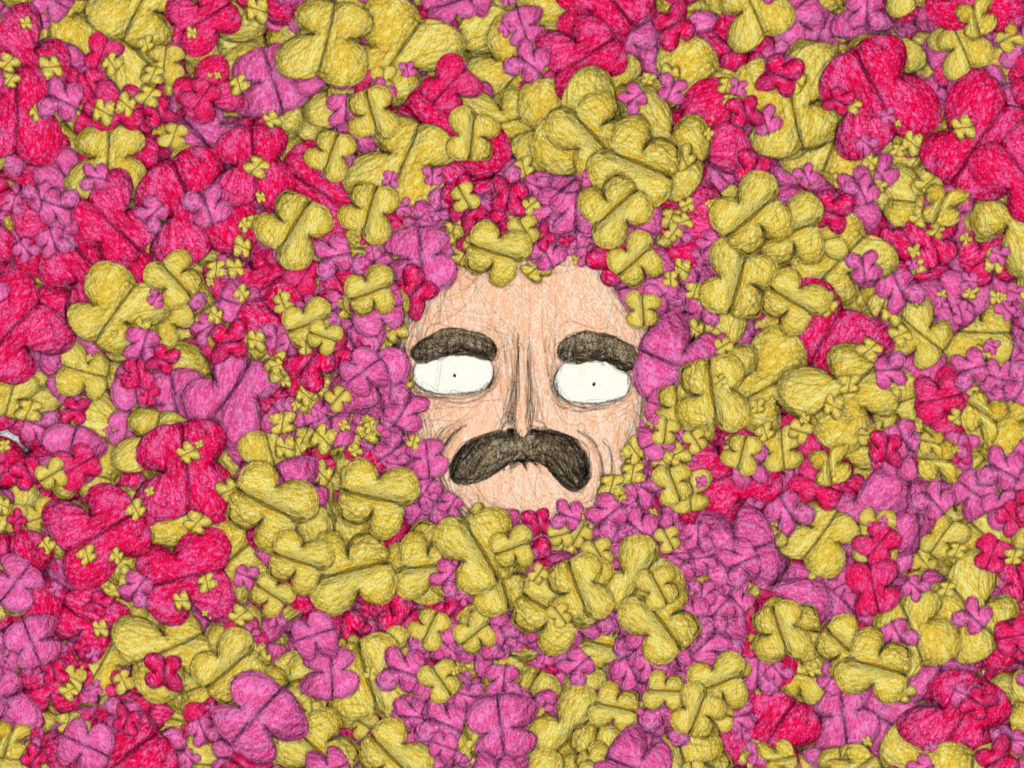Best of FAMU came to best of Anibar
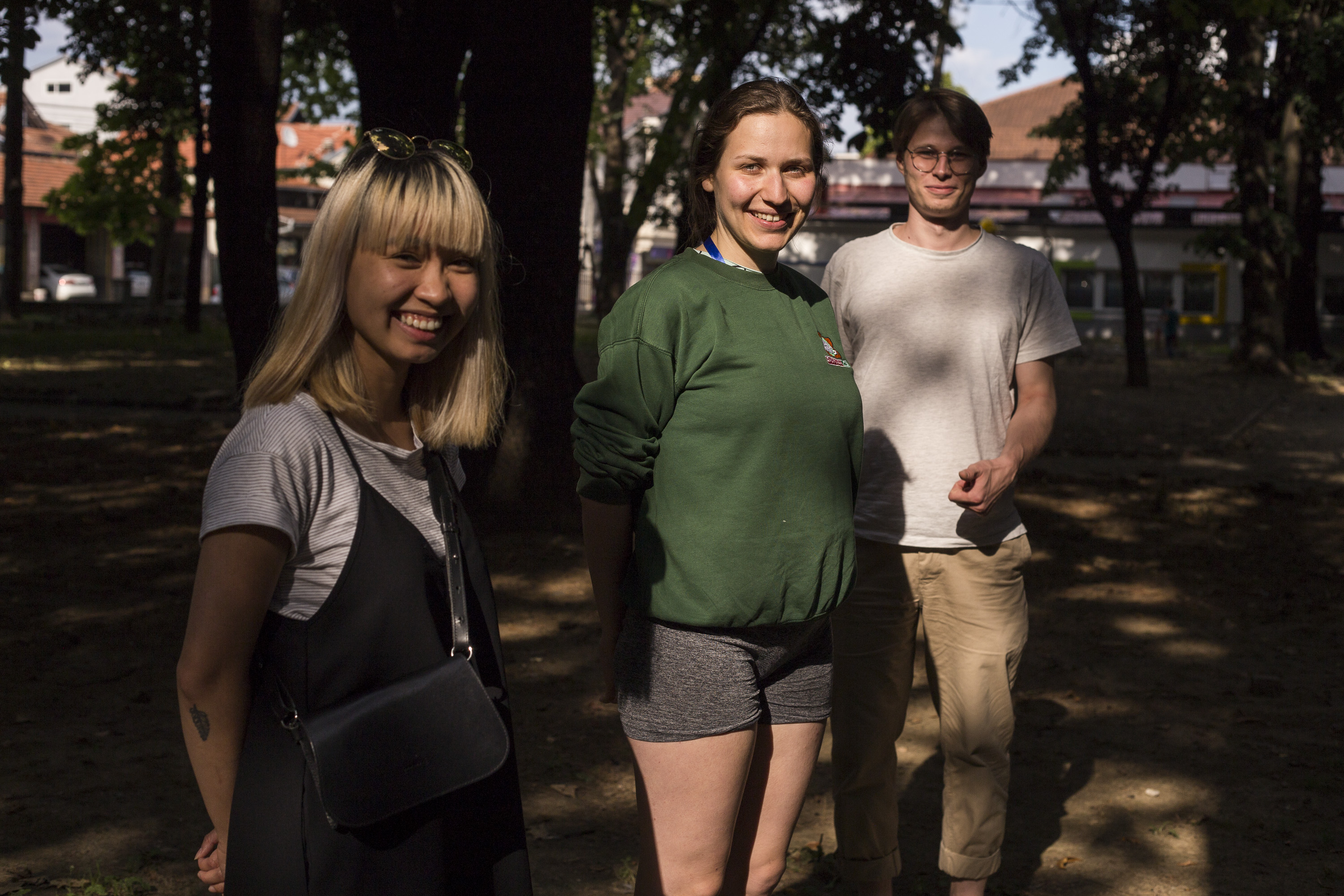
Established in 1947 and built by the most influential Czech filmmakers of that time, FAMU is one of the oldest film schools in Europe
Besarta Breznica
At the dawn of the 1960s, FAMU was the birthplace of the young artists movement which later became known as Czech New Wave, er, constituted Czech film’s hitherto most significant contribution to world cinematography and brought to Czechoslovakia- among other – two Oscars for best foreign films. Today, FAMU ranks among TOP 15 International Film Schools list as published annually by The Hollywood Reporter and its students, pedagogues, and graduates enjoy many successes at home and abroad.
FAMU’s Department of Animation (KAT) will turn 30 next year. We would like to proudly present to you a selection of the latest students’ works, which means the best animated movies and exercises created over the course of the past five years. KAT’s graduates often quite successfully continue working in the field of animation and it will present their current views and experiences of applying what they learned at school in praxis. The selection will also show the energy and attitude of the youngest students, i.e. the current ones.
We interviewed three students from this School that attended the 10 editions of Anibar. Read their answers on how it is to be a FAMU student.
Anibar Press: Tell us a bit more on how it is to be a student at FAMU?
Bara Halirova: It’s good! It’s prestigious in Czech, it’s like the oldest school in the whole of Europe. There’s like a tradition of animation there, and it’s hard to get there. I think it’s good, because there’s a film school, there’s a department of film industry in which all of us get to work with each other, it’s like a big connection with these departments.
Diana Cam Van Nguyen: Yeah, this thing is really good, being in contact with other departments like designers, producers, we make those connections during the study, and then after we go out of the school, we already have those contacts and we can collaborate and it’s a better chance to get a job, because people will know you so they can recommend you to some other friends.
David Stumpf: Also, we have a schedule at the school, and a lot of freedom to do what you want, you can choose some subjects which are not difficult. So that leaves you time to do project.?
Anibar Press: Can you tell us more about your movies?
David Stumpf: They’ve already been shown. Mine and Diana’s are fourth grade exercises that combine live action with animation, so somehow, we needed to work with actors, real actors. It doesn’t sound really appealing, especially to animators because many of us used to work alone, or with small teams, because at the end is clever because I never do it by myself, I was kind of afraid before. But, when you think some good techniques, or you are trying to combine like your abilities as animator with something new, it can have pretty interesting results. So you have many options, and many options you were never told before.
My film it’s called “Hoho” and it’s like a sad combination, and it’s about like the lonely guy who has horse head instead of a human head, and it makes his life kind of difficult for him, because he’s kind of alone, and doesn’t want to be. And then he meets a unicorn and they fall in love, and she finds out that the guy’s head is real, and her unicorn head is only a mask for a carnival.
Diana Cam Van Nguyen: Mine is a documentary called “Apart”, and there are three protagonists; three young people talking about how they lost their parents when they were young. Yeah that’s basically.
Bara Halirova: My film is about a bunch of kids that are playing hide and seek game, and the main protagonist will hide in this special shelter and he will get older eventually, and comes back as an old man, and it’s about, like, flow of time and there’s like two-time relations and it’s like poetic film.
Anibar PresS: What inspired you to do these movies?
Diana Cam Nguyen: For me, because I had these close friends, and they had these experiences and I felt that young people have these experiences and other people don’t know about it, don’t talk about it, and that’s why – I want other people to know what these young people experience.
David Stumpf: For me it’s kind of, this question is tricky, how I said before it’s a fourth grade exercise, and I had to do it even when I was in the middle of a development of my current film, my master film, and I found myself in a situation when I don’t have time for this film, but I also have to do it. I don’t know what really inspired me, because I was going through my notebook and sketches, and I found something and combined it, and – yeah – I came up with this collection: the horse and unicorn.
Bara Halirova: I wanted to do something about children games, I was inspired by my memories from childhood, like when you’re a kid you communicate somehow strange with other kids and you make up, like those crazy things, but the film is finally like – in the end it’s about something else, but that was the inspiration.
Anibar Press: Why did you choose animation?
David Stumpf: Animation is like the king of all arts, because it combines so many other art forms, such as literature, music, drawing illustrations, movement, cinematography editing and stuff like this. I like animated movies better than the real ones, because you can really stylize everything, you don’t have limitations, it’s super cool.
Bara Halirova: I agree with that.
Diana Cam Nguyen: I am like – from all the animators – I always don’t like this question.
Anibar Press: As you know, this year’s theme of Anibar is “Hope and Fear”. Could you share with us about your hopes and fears?
Diana Cam Van Nguyten: I fear I will end up alone for the rest of my life. I am scared I will never have children, and I don’t want to die alone. And hope is that I will find the love of my life, he’s gonna be handsome and nice, and rich, haha!
David Stumpf: I really, really want to do something for the rest of my life that I enjoy. I hate to be forced to do something, to do something without wanting to, for example for money or something. So, this is my hope. My fear is that I must write a thesis to finish school in one month, and this is my fear that I won’t do it.
Bara Halirova: I don’t know, this is difficult. If it should be like this long-life thing, I hope that people will find more opportunities how to communicate better, because there’s a lot, like, family basis that we have so many problems that we only want to communicate only inside family. And this festival makes it possible to communicate through nations, to get along. But I kind of fear that there are some kind of bad things coming. I hope we will be nice to nature and animals and each other and recycle. Everyone is recycling in Czech, but probably in Kosovo are bigger problems than recycling.
